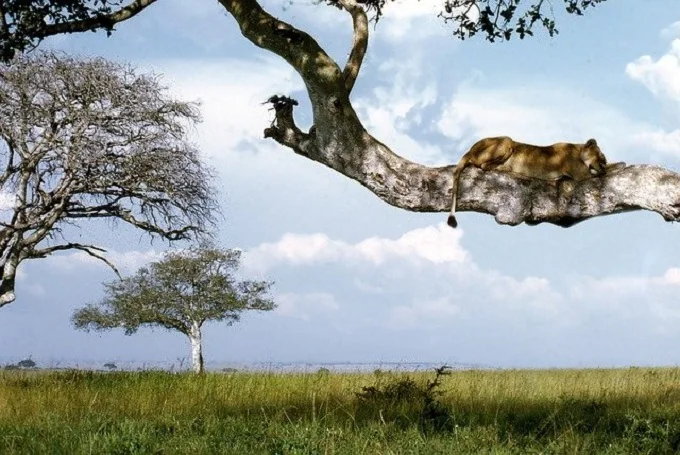Uganda is a small country located in East Africa. The beautiful nature of Uganda and its rich cultural heritage is of interest to anthropologists and ordinary tourists.
Facts about Uganda
- The population of Uganda is growing at a tremendous pace, in terms of the rate of its growth, this country ranks second in the world, and on average, every woman here gives birth to 6-7 children. That is why the Ugandan population was even included in the Guinness Book of Records as the youngest in the world – the average age in this country is just under 15 years.
- It is the smallest country in East Africa and one of 44 landlocked countries on Earth. But the lands of Uganda are very fertile, so almost all working Ugandans are employed in the agricultural sector. Therefore, the rate of urbanization here is one of the lowest globally, 87% of the population lives in rural areas. The remaining 13% live mainly in Kampala, the country’s capital.
- The Ugandan constitution does not establish a state religion, so secular power rules here. However, more than 80% of Ugandans are Christian; the rest are mostly Muslims. In Kampala, the capital of Uganda, there is a parish of the Orthodox Old Believer Church.
- Nature is amazingly rich here. There are more different bird species in Uganda than in any other country in the world – as much as 11%! The reserves are home to large mammals, and in the rivers and lakes, which occupy 15% of the territory, there are many fish, amphibians, and reptiles. A separate source of pride for this state is the Rwenzori National Park, located in the mountains of the same name. It is home to many unique living creatures, so this park was even fully recognized as a UNESCO World Heritage Site.
- Some African countries are affluent in minerals. Uganda, for example, has been found in its depths of rare earth metals and other expensive minerals. But because of the monstrous corruption, the proceeds from their extraction are flowing abroad, and a third of all Ugandans live in dire poverty. Most of the revenue to the state treasury comes from the export of bananas, for the production of which this country is the second-largest in the world after India.
- The Ugandan population is very ethnically diverse. Foreigners, out of habit, do not notice these differences, but representatives of many different peoples live here. Today, Uganda is also home to over 50 tribes with traditional lifestyles. Previously, pygmies also lived here, representatives of the shortest people in the world, but they were ousted from here long ago.
- Every year, Uganda is visited by more than 1,000,000 foreigners who want to visit local safari parks. They are located in reserves that occupy 16% of the entire territory of Uganda, and this country is one of three on Earth in which mountain gorillas are still in the wild. However, even in national parks, poaching flourishes here, despite all the efforts of the rangers keeping order.
- Foreigners can feel dizzy here due to low blood pressure. Most of the Ugandan territory lies between 1000 and 1500 meters above sea level, and the atmospheric pressure here is noticeably lower than most Europeans are used to. But in a couple of days, the body usually successfully adapts.
- In the past, Uganda was a colony of Great Britain, and English is still one of the two official languages here, along with Swahili. True, he was so mixed with local dialects that he differed very much from “correct” English. Just because you speak English well, it doesn’t mean that you can easily communicate with the locals.
- The most popular form of transport in Uganda is bicycles, simply because it is cheap. Hundreds of thousands of bicycles create crazy crowds on the streets of Ugandan cities, as cyclists, like drivers, completely ignore the road rules. In theory, they are here, but in practice, no one knows them.





